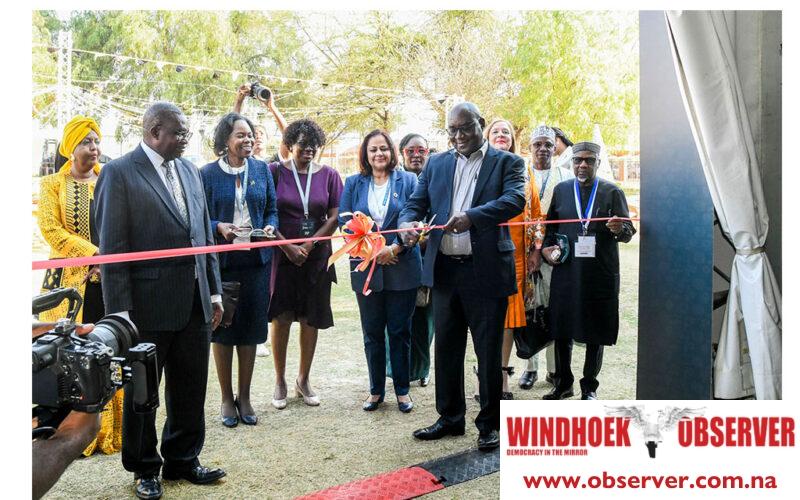Hilarius Hamutenya
Over 500 African industry leaders, policymakers, and small businesses are gathering in Windhoek for the third Annual Micro, Small and Medium-Sized Enterprises (AU MSMEs) forum to foster innovation and enhance capacity.
The Namibia Investment Promotion and Development (NIPDB) is hosting the event, which will run until Friday under the theme ‘Fostering financial empowerment and educational innovation for African startups’.
The four-day summit will include various activities aimed at equipping MSMEs with the information and skills needed to trade and boost intra-African trade under ACFTA.
Mathew Kaholongo, the director at the Cabinet’s secretariat under the office of the Prime Minister, said that according to a United Nations report on leveraging the power and resilience of MSMEs 2024, MSMEs account for 90% of businesses, 60% to 70% of employment, and 50% of GDP worldwide.
“These types of businesses are the backbone of societies everywhere, contributing to local and national economies and sustaining livelihoods,” he said.
He added that it is known that access to seed and growth capital is a common challenge that MSMEs across the continent face, but this problem tends to be a symptom of other underlying challenges, such as limited business skills and knowledge.
Kaholongo also explained the importance of educating MSMEs to build their business acumen and, thereby, their ability to access markets and funding opportunities.
The event, according to Albert Muchanga, African Union Commissioner for Economic Development, Trade, Tourism, Industry, and Minerals, serves as a soft launch for the continental extractive industries program and the Afro Hackathon, both of which are based on the multi-stakeholder approach to the lithium-ion battery value chain and the African Mining Vision (AMV).
“This is just the beginning of a strengthening and growing community of practices around future jobs in the African green minerals value chains,” he said.
He added that there is a special focus on capital equipment manufacturing, hydrogen and fuel cell localisation, LFP, NMC, battery precursor production, and buses as well as small four-wheelers.




